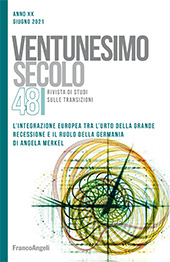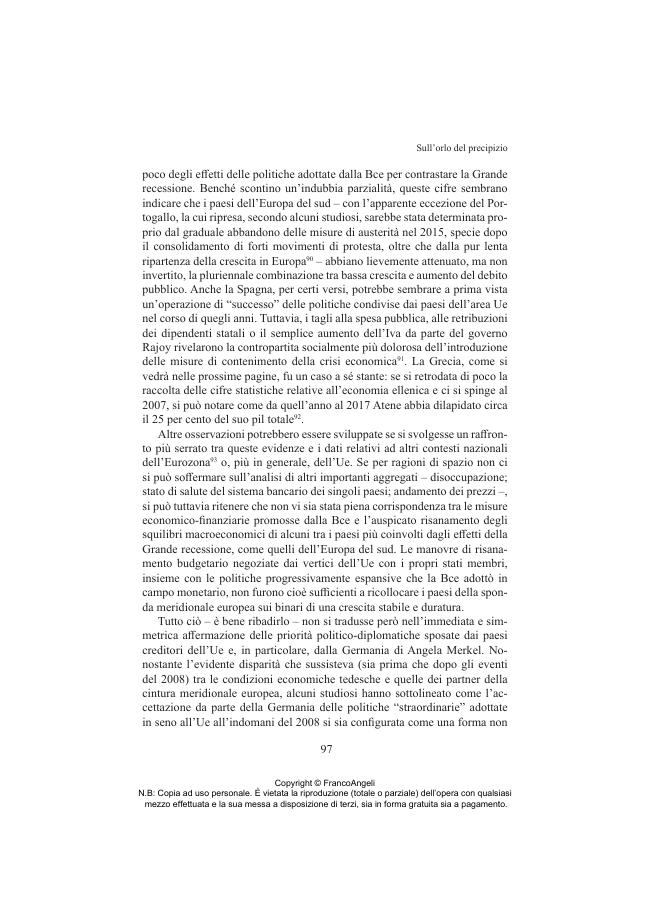Sull'orlo del precipizio : la reazione economico finanziaria delle istituzioni europee di fronte alla Grande recessione (2008-2015)
81-112 p.
This contribution aims at understanding how one of the political and economic areas most aff ected by the Great Recession, namely the European Union (EU), reacted to its impact and dealt with its eff ects in the short and medium term. I will consider the period between 2008, when the fi rst signals of the EU banking system's fl aws appeared, and 2015, when the Greek referendum on the "austerity" measures imposed by the EU Commission, the International Monetary Fund (IMF) and the European Central Bank (ECB) the socalled troika made clear the political, economic and even cultural implications within which the leaders of the EU institutions and its member states faced the eff ects of the crisis that broke out about seven years ago. The article will also focus on the role played by some of the main EU member countries, such as Germany.
This contribution will therefore off er an overview of the main turning points that marked the spread and worsening of the Great Recession in the EU area between 2008 and 2015. It fi nally aims at illuminating the interdependence between national and international choices that drove European leaderships the EU Commission, the ECB and EU member states, with particular emphasis on to the role played by Germany in their attempt to face the global economic and fi nancial collapse which occurred in those years. [Publisher's text].
-
Articles du même numéro (disponibles individuellement)
-
Informations
Code DOI : 10.3280/XXI2021-048005
ISSN: 1594-3755
KEYWORDS
- Great Recession, European Integration, Economic Crisis, Neoliberalism, European Central Bank (ECB)



